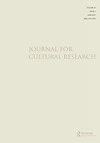Evaluating conspiracy claims as public sphere communication
IF 0.6
Q1 CULTURAL STUDIES
引用次数: 4
Abstract
ABSTRACT Conspiracy theories have become a ubiquitous feature of contemporary culture. From a communication studies perspective, conspiracy theories undermine democratic communication by misleading the public. However, the normative concept of a democratic public sphere also upholds the values of giving visibility to diverse perspectives and facilitating reasoned debate. Thus, academics can acknowledge the harms of conspiracy claims while being open, in principle, to their potential contribution to public debate. The challenge, of course, is to evaluate the public sphere implications of conspiracy claims; implications that may be difficult to ascertain and may change over time as new evidence emerges. This position is elucidated through an analysis of the conspiracy claims found in mainstream and alternative media coverage of the Syrian conflict. Much of the debate centres on ideas about the trustworthiness and impartiality of journalists and experts whereby efforts to establish the facts are superseded by received ideas about the credibility of sources. Ultimately, the Syrian conflict indicates that conspiracy claims can be valuable for the public sphere provided there are impartial actors willing to investigate conspiracy claims and provide clarification to the public.评估阴谋主张作为公共领域传播
阴谋论已经成为当代文化中无处不在的特征。从传播学的角度来看,阴谋论通过误导公众来破坏民主传播。然而,民主公共领域的规范概念也支持让不同观点可见和促进理性辩论的价值。因此,学术界可以承认阴谋论的危害,同时原则上对其对公众辩论的潜在贡献持开放态度。当然,挑战在于评估阴谋论对公共领域的影响;这些影响可能难以确定,并可能随着时间的推移而随着新证据的出现而改变。通过对叙利亚冲突的主流和另类媒体报道中发现的阴谋主张的分析,阐明了这一立场。许多争论集中在关于记者和专家的可信度和公正性的观点上,由此确立事实的努力被关于消息来源可信度的公认观点所取代。最终,叙利亚冲突表明,只要有公正的行为者愿意调查阴谋主张并向公众提供澄清,阴谋主张对公共领域可能是有价值的。
本文章由计算机程序翻译,如有差异,请以英文原文为准。
求助全文
约1分钟内获得全文
求助全文
来源期刊

Journal for Cultural Research
CULTURAL STUDIES-
CiteScore
1.40
自引率
0.00%
发文量
23
期刊介绍:
JouJournal for Cultural Research is an international journal, based in Lancaster University"s Institute for Cultural Research. It is interested in essays concerned with the conjuncture between culture and the many domains and practices in relation to which it is usually defined, including, for example, media, politics, technology, economics, society, art and the sacred. Culture is no longer, if it ever was, singular. It denotes a shifting multiplicity of signifying practices and value systems that provide a potentially infinite resource of academic critique, investigation and ethnographic or market research into cultural difference, cultural autonomy, cultural emancipation and the cultural aspects of power.
 求助内容:
求助内容: 应助结果提醒方式:
应助结果提醒方式:


